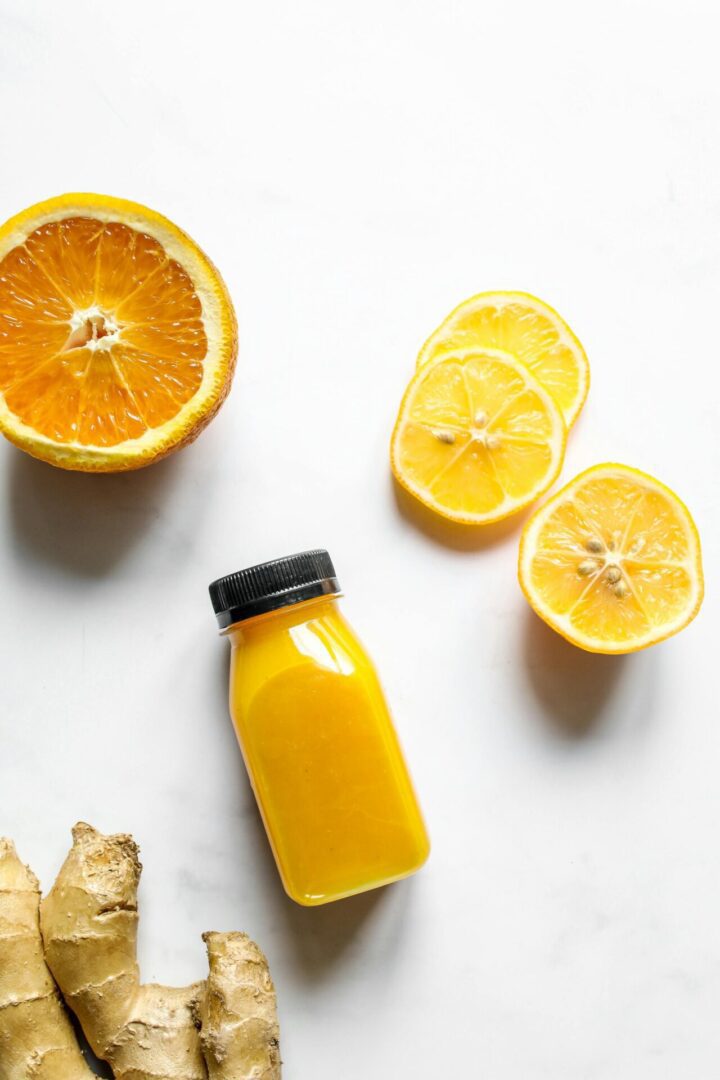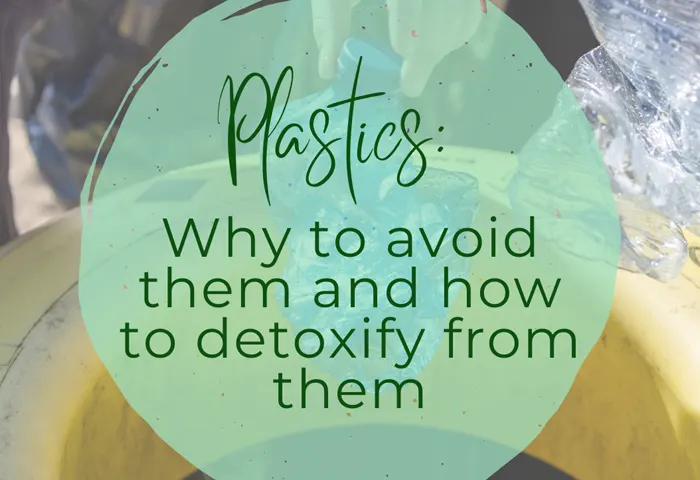Detox from Plastics: Why to Avoid Them and How to Detoxify Safely
Detox from plastics is a topic we all know we should be talking about, but it doesn’t come up often enough. Plastic is literally everywhere, and while we cannot completely escape it, we can take mindful steps to detox from plastics and reduce our exposure.
Understanding the Impact of Plastics and Plasticizers
Detox from plastics is essential. Plastics, especially phthalates (plasticizers), are found in countless everyday items—from beauty products and water bottles to electronics and furniture. These plasticizers are not permanently bound to materials, so they can leach, migrate, or evaporate into our environment and bodies. Studies show that bottled water often contains xenoestrogens, chemicals that disrupt hormones and can cause endocrine issues. While most people can metabolize some exposure, slow metabolizers may accumulate toxins, leading to chronic fatigue, depression, skin problems, and even hormone and fertility issues. In utero exposure is linked to developmental changes in children. This highlights why detox from plastics is so important.
Anyone aiming to reduce health risks must detox from plastics. Consider the products you use daily—switching to reduced-waste living and minimizing plastic use helps the environment and your family’s well-being.
Simple Switches to Reduce Exposure
-
Switch your plastic water bottle for a reusable one made of stainless steel or glass. If you must buy bottled beverages, choose glass packaging, which leaches fewer toxins and is better for recycling or reuse. This highlights why detox from plastics is so essential.
-
Choose clean beauty products from companies committed to safe, non-plastic packaging.
-
Switch to shampoo and conditioner bars with natural ingredients and plastic-free packaging.
-
Buy fresh fruits and vegetables, not wrapped in plastic. This highlights why detox from plastics is so essential.
-
Ask your favorite brands about their packaging and sustainability practices. Support companies using compostable or recyclable packaging.
Practical Steps to Support Detox from Plastics
Reducing your exposure to plastics is the first step in any detox from plastics plan. Switching to glass or stainless steel containers, choosing clean beauty products, and eating fresh foods not wrapped in plastic are simple yet effective strategies. Supporting your body’s natural detoxification through diet, such as consuming cruciferous vegetables, and therapies like Far Infrared Sauna can enhance detox. Consulting with a naturopathic or integrative practitioner can provide personalized guidance on detox from plastics.
Supporting Your Body’s Natural Detox from Plastics
Detox from plastics is not just about avoiding plastic products; it also involves actively supporting your body’s ability to eliminate these harmful substances. Microplastics and plasticizers can accumulate in organs like the liver and kidneys, potentially impairing their function. Therefore, enhancing your body’s natural detox pathways is crucial to any detox plan from plastics.
One of the best strategies to support detox from plastics is to focus on liver health. The liver plays a central role in metabolizing and clearing toxins, including plastic-derived chemicals. Eating a diet rich in fiber from fruits, vegetables, and whole grains can promote bile secretion, which helps bind toxins and facilitates their removal through the digestive tract. Cruciferous vegetables such as broccoli, cauliflower, and kale are especially beneficial for liver detoxification and can aid in detoxing from plastics.
 Hydration is another key factor. Drinking filtered water helps flush toxins from your system and supports kidney function. Consider using a high-quality water filtration system to reduce microplastic exposure from tap water. Avoid bottled water in plastic containers, as studies reveal they often contain high levels of microplastics.
Hydration is another key factor. Drinking filtered water helps flush toxins from your system and supports kidney function. Consider using a high-quality water filtration system to reduce microplastic exposure from tap water. Avoid bottled water in plastic containers, as studies reveal they often contain high levels of microplastics.
Certain supplements and natural binders can also assist in detox from plastics. Activated charcoal and bentonite clay have been shown to adsorb toxins in the gut, potentially trapping microplastics and facilitating their elimination. Algae supplements like chlorella and spirulina may bind heavy metals and plastic-related toxins, supporting their removal from the body.
In addition to dietary and supplement strategies, lifestyle practices such as regular exercise and sweating through activities like sauna use can enhance detoxification. Sweating is a natural way for the body to expel toxins, including plastic-derived chemicals.
Finally, reducing your ongoing exposure is critical. Detox from plastics is most effective when combined with conscious efforts to avoid plastics daily. This includes using glass or stainless steel containers, avoiding plastic wrap, choosing natural fiber clothing, and opting for plastic-free personal care products.
By combining these approaches—reducing exposure, supporting liver and kidney function, staying hydrated, and using natural detoxifiers—you empower your body to detox from plastics more effectively, helping to protect your health in a plastic-saturated world.
Detox from plastics is a journey that starts with small, intentional choices. You can protect your health and the environment by reducing exposure and supporting your body’s detoxification pathways for years.
Lastly, you can help your body bind and detoxify plasticizers through glucuronidation (with the help of a qualified practitioner), eating two or more servings of raw cruciferous vegetables daily, or using a Far Infrared Sauna. IV vitamin infusions with antioxidants and micronutrients can also support your natural detoxification process. If you’re interested in how IV nutrition can help detox from plastics, schedule a consultation to learn more. This highlights why detox from plastics is so essential.

